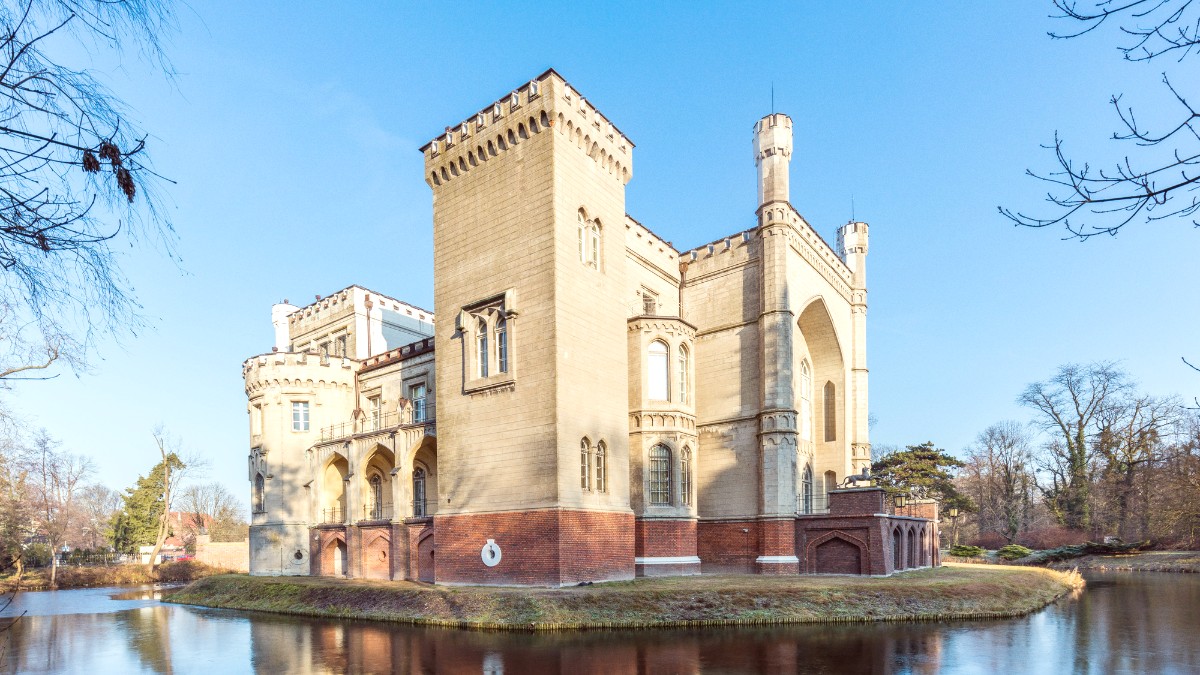
Wielkopolska, Poland
Poznań experiences a temperate climate with four distinct seasons, each offering a different atmosphere. Spring (April-May) brings mild temperatures (8-15°C / 46-59°F) with blossoming parks. Summer (June-August) is the warmest (18-25°C / 64-77°F), ideal for outdoor activities. Autumn (September-October) brings mild to cool temperatures (7-14°C / 45-57°F) and beautiful foliage. Winter (November-March) is cold (-2-3°C / 28-37°F) with snowfall, offering a winter wonderland feel.
High season (June-August) means warm weather and long daylight. Many festivals occur, but prices are higher and crowds larger. Shoulder seasons (April-May & September-October) balance comfortable temperatures and smaller crowds with lower prices. The weather can be unpredictable. Low season (November-March) offers significantly lower prices and fewer tourists, but be ready for cold and shorter daylight. Poznań’s Christmas Market adds charm in December.
Summers can experience occasional heatwaves; light clothing and hydration are wise. Sudden thunderstorms are also possible; carry a [compact umbrella](https://www.amazon.com/s?k=compact+umbrella) or [light rain jacket](https://www.amazon.com/s?k=light+rain+jacket). Winters can be severe, bringing heavy snowfall and icy conditions. Warm, waterproof footwear with good grip becomes important.
For sightseeing and walking tours, late spring (May) and early autumn (September) present comfortable weather. Outdoor activities like cycling or lake activities find their best time in summer (June-August). For a festive atmosphere, December offers Poznań's Christmas markets. If cultural festivals interest you, plan your trip around June or July for events like the Malta Festival Poznań.
Be ready for sudden thunderstorms.
Compact umbrella, light rain jacket.
Sudden downpours.
Expect snow and ice.
Warm, waterproof, grippy footwear.
Slippery sidewalks.
Book accommodation and flights early.
Advance bookings for summer travel.
Higher prices and larger crowds.
Poland is part of the Schengen Area. Citizens of Schengen member states, EU/EEA countries, and Switzerland do not need a visa for stays up to 90 days. They enter Poland using their national ID card or passport. Many visa-exempt nationalities also enter Poland for tourism or business for up to 90 days within any 180-day period without a visa. This includes citizens of the USA, Canada, Australia, the UK, Japan, and South Korea, among others. Confirm your country's specific status before travel. While a visa is not needed, these travelers will soon need to apply for an ETIAS (European Travel Information and Authorisation System) authorization for short stays in the Schengen area. This system becomes operational in 2025. It is not a visa but a pre-travel authorization.
Citizens of countries not covered by Schengen agreements or visa-exempt agreements must apply for a Schengen visa (Type C) at a Polish embassy or consulate in their country of residence. This process typically sees a detailed application form, numerous supporting documents, and an interview. Documents commonly needed include proof of purpose of travel (e.g., hotel bookings), proof of sufficient funds, and travel insurance. Begin this process well in advance; processing times vary.
Valid for at least three months beyond departure from Schengen Area, with two blank pages.
Valid Schengen visa physical copy.
Bank statements or credit card statements.
Proof of travel from Schengen Area.
Hotel bookings or invitation letter.
The local currency is the Polish Złoty (PLN, often abbreviated as zł). ATMs are widely available and offer competitive exchange rates. Using ATMs for cash withdrawals usually is the most cost-effective method for currency exchange. Banks and currency exchange offices, "Kantor," are common. While Kantors have their place, compare their rates to ensure a fair deal; avoid those near tourist hotspots with unfavorable rates. Credit and debit cards (Visa and Mastercard are widely accepted) see use in most establishments, especially in larger shops, restaurants, and hotels. Smaller local shops or street vendors might prefer cash, so carrying some Polish Złoty is wise.
These are averages and vary based on your choices.
A balance of comfort and experiences.
Utilize Poznań's public transportation system. Consider purchasing a Poznań City Card for combined transport and attraction discounts if you plan frequent use.
Poznań is generally a safe city with low crime rates. Violent crime is rare. Petty crime, like pickpocketing, can occur in crowded tourist areas like the Old Market Square, on public transport, at the main train station, or during large events. Maintain vigilance with your belongings, keep valuables out of sight, and consider a [money belt](https://www.amazon.com/s?k=money+belt) or secure bag. Like any city, exercise caution late at night, especially in less well-lit or deserted areas. The city center and main tourist areas are well-monitored and generally safe at all hours.
Routine vaccinations recommended; Hepatitis A and B often suggested. Rabies for high-risk activities. Consult a travel health professional.
Tick-borne diseases (Lyme, TBE) in forested areas; use [insect repellent](https://www.amazon.com/s?k=insect+repellent+containing+deet+or+picaridin). Seasonal allergies in spring/summer.
Modern medical facilities. Private clinics offer quicker appointments, English-speaking staff. Pharmacies ("Apteka") widely available, some 24/7.
Tap water in Poznań is generally safe to drink and meets EU standards.
Food hygiene standards in Poland are high. Eating at restaurants, cafes, and food stalls is generally safe. Choose busy places with high turnover, ensure food is cooked thoroughly, and observe general cleanliness.
No specific health-related entry requirements currently apply. You do not need to show proof of vaccination or negative test results for particular diseases upon entry.
Natural disaster risks in Poznań are low. Summers can bring heatwaves; stay hydrated. Winters mean potential for icy sidewalks; wear appropriate footwear.
Dial 112 for police, ambulance, or fire services throughout Poland.
Police: 997, Ambulance: 999, Fire: 998.
Keep contact details for your country's embassy or consulate in Poland (most are in Warsaw) for assistance with lost passports or other consular services.
Poznań is safe, but awareness is wise, especially in crowded areas.